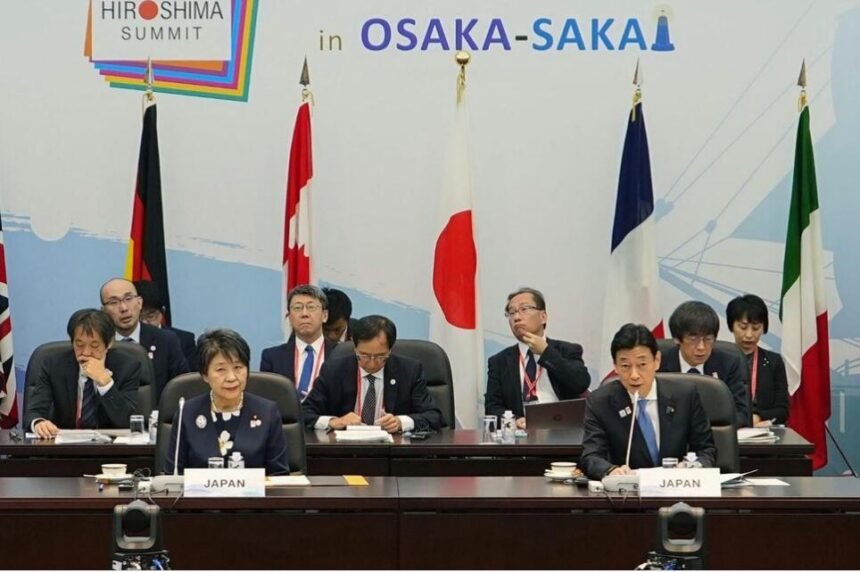Despite global uncertainty, trade and economic leaders from the G-7 affluent democracies have reaffirmed their commitment to working together to maintain smooth supply chains for commodities like as energy and food.
In a joint statement, the countries pledged to maintain “a free and fair trading system based on the rule of law and enhancing economic resilience and economic security.” Foreign Minister Yoko Kamikawa, who co-hosted the two-day event in Osaka, alluded to Russia’s invasion of Ukraine and the Israel-Hamas conflict as the most recent dangers to stable energy and food supply.
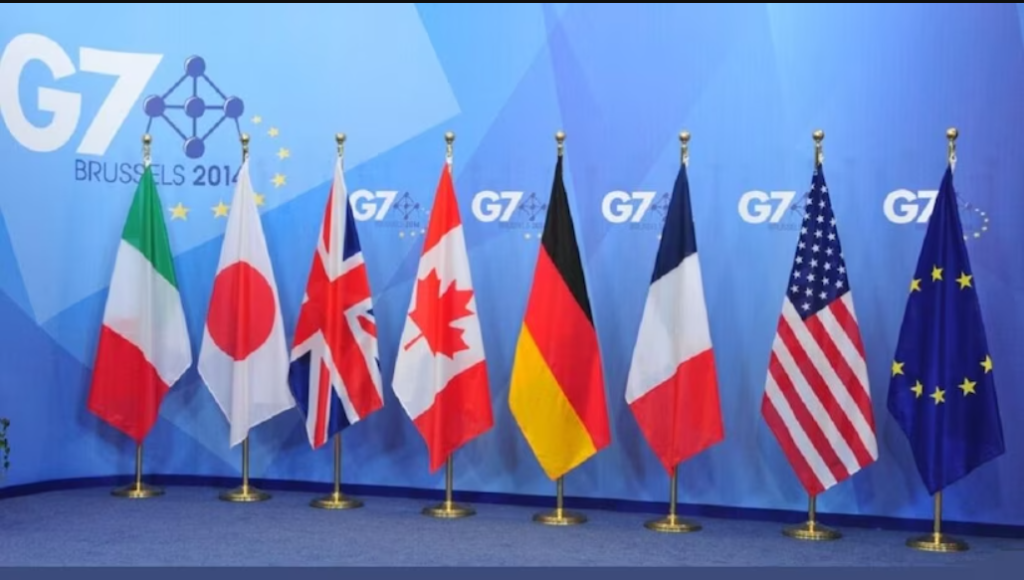
“We nations that share important values have a position of responsibility amid growing uncertainties,” she remarked at the meeting’s conclusion, emphasizing democracy, inclusion, and human rights.
Concerns are developing in industrialized countries about maintaining a steady supply of computer chips as well as important minerals such as lithium, which are critical these days due to the need for electric vehicles and other green energies.
The G-7 consists of the United States, Canada, France, Germany, Italy, Japan, and the United Kingdom. The European Union, Australia, Chile, India, Indonesia, and Kenya, as well as economic groups such as the World Trade Organization, were invited to attend the two-day meeting.
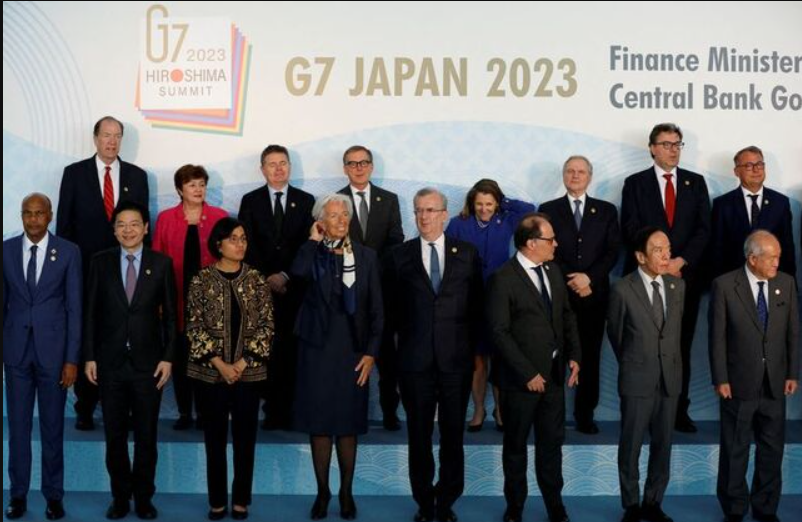
The G-7 nations renewed their condemnation of what they called “Russia’s brutal, unprovoked, unjustifiable, and illegal war of aggression against Ukraine.” Participants explored how trade policy can help combat climate change, improve food security, promote digital trade, and work toward sustainable development.
Although China was not officially raised in the discussions, trade is one sector where growing political tensions with China have been playing out. While China was not present at the sessions, it loomed as a major point. China has imposed export restrictions on two metals used in computer chips and solar cells, gallium and germanium, citing the need to “safeguard national security.”
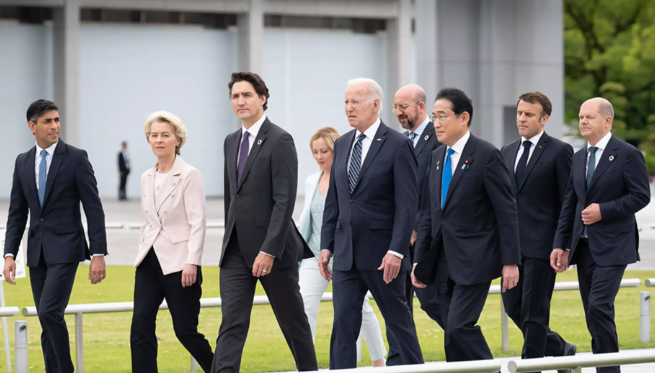
Participants at the G-7 conference in Hiroshima, southwestern Japan, earlier this year referred to “economic coercion” in an oblique allusion to China’s leveraging of other nations’ reliance on economic commodities. That remark was used again at the G-7 meeting in Osaka. Japan focused on how China has restricted Japanese seafood imports following the recent enormous release of treated wastewater from the Fukushima nuclear facility, which had reactor meltdowns in 2011.
The Japanese minister in charge of commerce and the economy, Yasutoshi Nishimura, said the G-7 nations voiced support and understanding for Japan’s position, emphasizing the safety of Japanese food based on scientific information, including that from Fukushima. Japan would continue to press for the lifting of food bans, he told reporters.
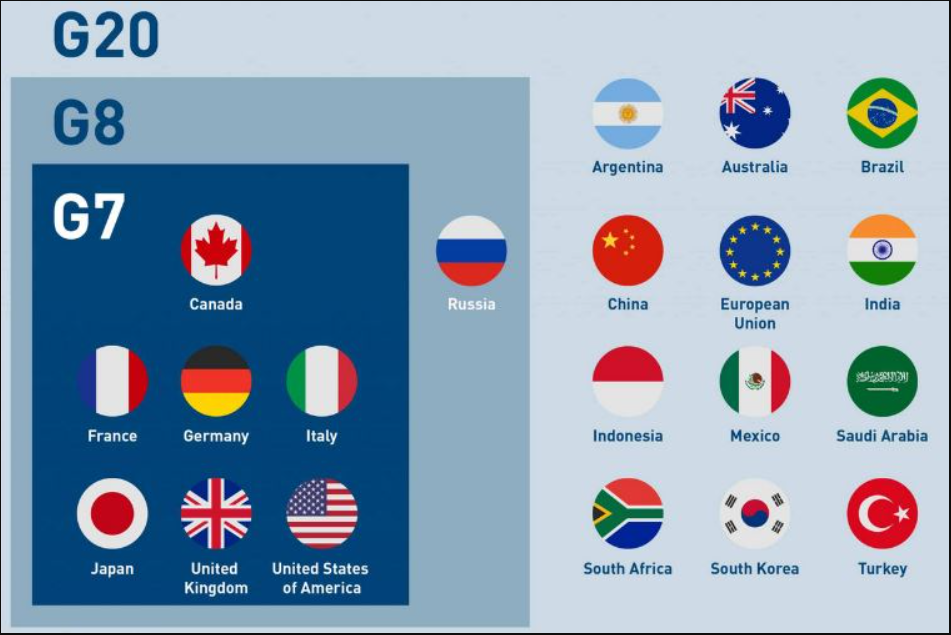
Nishimura also stated that the G-7 meeting’s guest nations, which included Australia and India, were potentially significant allies in improving the supply chain for valuable commodities. On the fringes, Britain and Japan agreed to collaborate on mineral supply chains, which both sides said were critical to achieving sustainable energy and effective national security.
Japan and the EU also signed an agreement on digital data exchanges, reaffirming their resolve to collaborate on standards to boost digital-sector trade, particularly online exchanges. Kamikawa also met with U.S. Trade Representative Katherine Tai, reaffirming bilateral connections in favor of “the free and fair economic order,” and exchanging views on the necessity of women taking on more leadership positions on the G-7 stage.
Frequently asked questions
Who are the G7 countries?
The Group of Seven (G7) is an informal alliance of seven advanced economies: Canada, France, Germany, Italy, Japan, the United Kingdom, and the United States, as well as the European Union.
What are G7 and G8 countries?
The G7 Summits brought leaders from the United States, Japan, Germany, the United Kingdom, France, Italy, and Canada together, and Russia’s inclusion resulted in the formation of the G8.
Is India part of G8?
The prominent G-8 consists of the United States, the United Kingdom, Canada, France, Germany, Italy, Japan, and Russia, while the five Outreach Countries are, in addition to India, Brazil, China, Mexico, and South Africa.
Why was Russia removed from G7?
Russia was kicked out of the G7 in 2014 when it invaded Crimea, and its continuous disregard and flouting of international standards and norms is why it continues and will remain outside of the G7.
Click here to learn about G-7.







